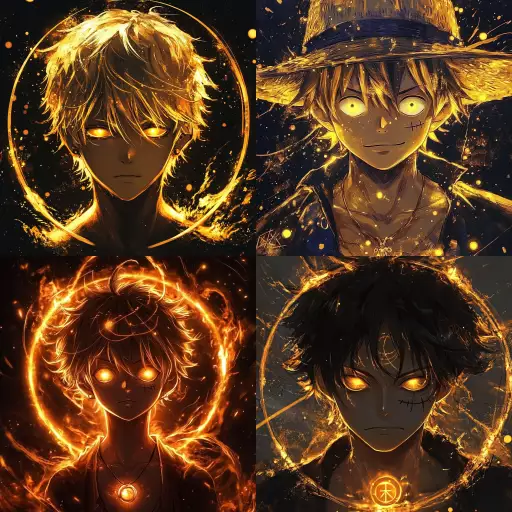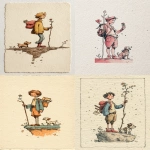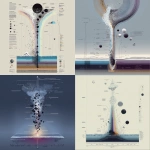Explore the Best AI Image Gallery

AI-Generated Media: A Canvas of Innovation and Ethical Crossroads
The realm of creativity is undergoing a profound transformation, driven by the rapid advancements in artificial intelligence (AI). AI-generated media, encompassing everything from text and images to music and video, is emerging as a powerful force, reshaping the creative landscape and blurring the lines between human and machine ingenuity.
This paradigm shift presents both exciting opportunities and complex ethical challenges. Lets explore the potential uses of AI-generated media, delve into its impact on the creative industry, and navigate the crucial ethical considerations that accompany this technological evolution.
Potential Uses: Expanding Creative Horizons
- Content Creation: AI can assist writers in generating compelling narratives, poets in crafting evocative verse, and musicians in composing original melodies. This can empower creators with new tools to express themselves and accelerate their creative process.
- Personalized Experiences: AI algorithms can analyze user preferences and tailor media content to individual tastes. Imagine receiving personalized news feeds, customized artwork, or even AI-generated music playlists that perfectly match your mood.
- Accessibility Enhancement: AI-powered tools can make creative endeavors more accessible to individuals with disabilities. For example, text-to-speech and speech-to-text technologies can empower those with visual or auditory impairments to engage in creative writing and storytelling.
Impact on the Creative Industry: A Double-Edged Sword
The integration of AI into the creative industry is a double-edged sword. While it offers immense potential for innovation and efficiency, it also raises concerns about the displacement of human creatives and the potential for homogenization of artistic output.
- Efficiency Gains: AI can automate repetitive tasks, freeing up human creatives to focus on higher-level conceptual work and artistic vision. This can lead to increased productivity and streamlined workflows.
- New Job Opportunities: The rise of AI-generated media will create new job roles in areas such as AI training, algorithm development, and creative direction for AI systems.
- Ethical Considerations: It is crucial to ensure that AI tools are used responsibly and ethically. Concerns about copyright infringement, bias in algorithms, and the devaluation of human creativity need to be addressed through thoughtful regulation and industry best practices.
Navigating the Ethical Landscape
As AI-generated media becomes increasingly prevalent, it is imperative to establish clear ethical guidelines and frameworks. Some key considerations include:
- Attribution and Ownership: Who owns the copyright to AI-generated content? Should creators of AI algorithms be considered co-authors alongside human artists?
- Bias Mitigation: AI algorithms can perpetuate existing societal biases. It is essential to develop techniques to identify and mitigate bias in training data and algorithms to ensure fairness and inclusivity in AI-generated media.
- Transparency and Explainability: The decision-making processes of AI systems should be transparent and understandable to humans. This will help build trust and accountability in the use of AI for creative purposes.
Future Trends: A Glimpse into Tomorrow
The future of AI-generated media holds immense possibilities. We can expect to see:
- More sophisticated and realistic AI models:** AI algorithms will continue to evolve, producing content that is increasingly indistinguishable from human-created work.
- Hyper-personalization: AI will enable the creation of truly personalized media experiences, tailored to individual preferences and tastes.
- Emergence of new creative mediums:** AI will push the boundaries of artistic expression, giving rise to novel forms of art and storytelling that we can only begin to imagine.
Conclusion: Embracing Innovation Responsibly
AI-generated media is a powerful force that has the potential to revolutionize the creative industry. By embracing innovation responsibly, addressing ethical concerns, and fostering collaboration between humans and AI, we can unlock the full potential of this transformative technology while safeguarding the value of human creativity.





](https://images.ai-img.art/thumbnails/150/396b1c442fa4d576e35f871ba0f3c7e52bb62c6bcee69082dbcb816a5fd3aa8c.webp)








](https://images.ai-img.art/thumbnails/150/230fb1adf4241373591167585daecc4556f4c58c4d0dc33638c62b1c60c1b72a.webp)

](https://images.ai-img.art/thumbnails/150/10ab1dbb1358d3dbba41472a395400bd9daf5cba3f5c8841970b4110820d5a15.webp)


](https://images.ai-img.art/thumbnails/150/266c825c7f03beff90a8a60e36207b8240cdf722eb1cf5db26e8adb51b992287.webp)





](https://images.ai-img.art/thumbnails/150/58fa7e3c741db40e9e61e20410c8d5675b11efb625df109812cc768f9b17b717.webp)




](https://images.ai-img.art/thumbnails/150/bda14621f89269b376d6681934fea3c4af8c5f8593b80e1cb25cdf0047f98621.webp)


](https://images.ai-img.art/thumbnails/150/f7e46d83151e744219d4886ca1329794d3e9d5071649abea0b2996cb34c3c77c.webp)



](https://images.ai-img.art/thumbnails/150/2f4f685af05f9526e1ac2f05f53dbb1d97bf8a65f6a41c6e67059c5ed2aa871f.webp)









](https://images.ai-img.art/thumbnails/150/b814eba984b490e7f87095501b4c13b17e89f8960f044f09fbf2053969d9be29.webp)
](https://images.ai-img.art/thumbnails/150/6650b0d98c6fec81df8bdfb569e0033970b46a653d188dde42417e624901493f.webp)
